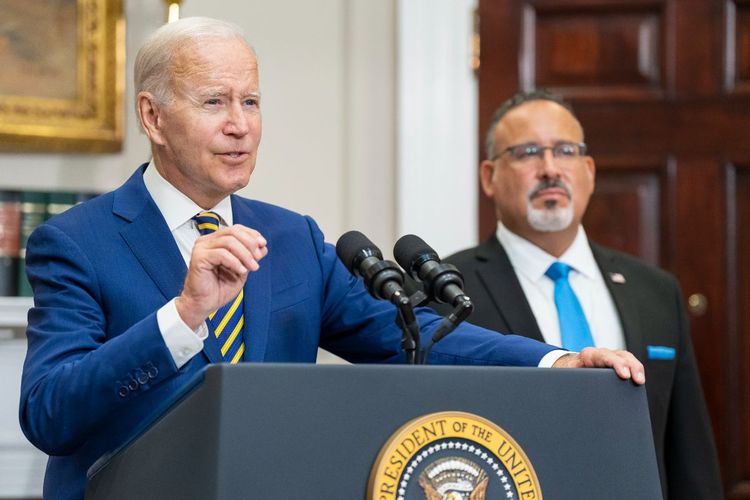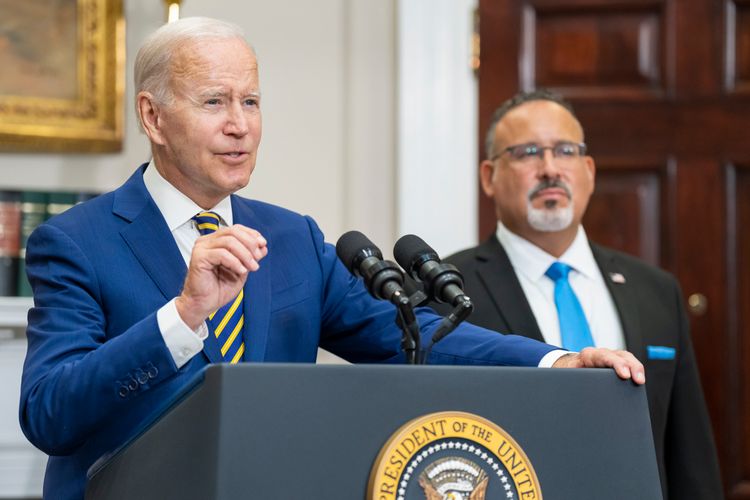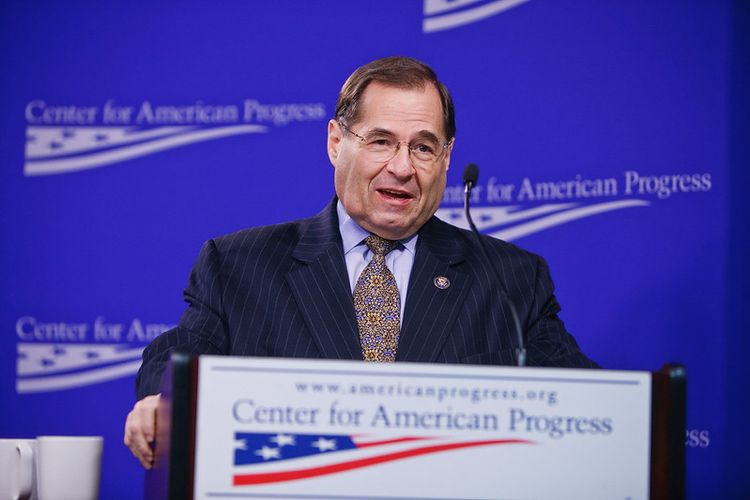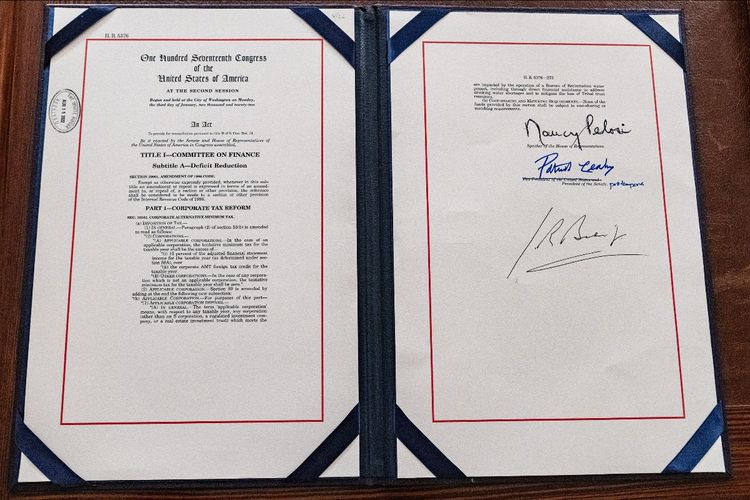Wake Up To Politics - August 10, 2022

by Gabe Fleisher
Good morning! It’s Wednesday, August 10, 2022. Election Day 2022 is 90 days away. Election Day 2024 is 818 days away.
We haven’t learned much in the past 24 hours about the FBI’s unprecedented raid of former President Donald Trump’s residence on Monday. But I want to start this morning’s newsletter there, offering a quick recap of what we have gleaned.
Later down, the “Ask Gabe” section is back (and will be throughout the week) with some questions I’ve received recently from readers. Today, I’ll tackle inquiries on the new Forward Party and the Democratic reconciliation package.
Plus, I want to share some election results from Tuesday — and, as always, give you a sense of what’s going on in Washington today.
New details from the Mar-a-Lago raid
Here’s a quick look at the latest information we’ve been able to gather about Monday’s historic raid:
Recall that the investigation at hand commenced earlier this year, when the National Archives began to suspect that Trump had taken some official documents with him to Mar-a-Lago after his presidency ended, in violation of the Presidential Records Act and other statutes.
In February, Archives officials went to Trump’s resort and found 15 boxes of presidential records — some containing classified materials — stored there.
But investigators recently grew “increasingly concerned” that there were still more materials Trump was holding on to, the Washington Post reported Tuesday, which was the impetus for Monday’s search.
According to the Post, federal officials had also come to believe that Trump’s lawyers were not being “truthful at times” in their dealings with investigators.
FBI agents took about 12 more boxes of documents from Mar-a-Lago after the search, one of Trump’s lawyers told the Post. Another lawyer told CBS News that the raid involved 30-40 FBI personnel and concentrated on three areas: a bedroom, an office, and a storage room.
Per the New York Times, the Justice Department also subpoenaed Mar-a-Lago’s surveillance tapes earlier this year (and received them), after a June visit to the resort by DOJ officials.
According to Axios, “Trumpworld is abuzz with speculation” that one or more of his close aides “flipped” and provided sensitive information to the FBI about what Trump had at Mar-a-Lago.
Republicans have continued to demand more information from Attorney General Merrick Garland or Trump-appointed FBI director Christoper Wray, but radio silence persists so far from the DOJ.
As with other Trump controversies, a noticeable split has emerged between the responses of Senate Minority Leader Mitch McConnell (R-KY) and House Minority Leader Kevin McCarthy (R-CA). While McCarthy rushed to condemn the raid Monday night, McConnell waited until Tuesday to give a more measured response, calling for a “thorough and immediate explanation” from Garland.
The White House also refused to comment on Tuesday. Press secretary Karine Jean-Pierre said President Biden was given no advance notice of the raid, batting down Trump’s evidence-free claims to the contrary.
Trump himself could likely provide more information on the probe, since the FBI would have had to give his lawyers a copy of the search warrant after arriving at Mar-a-Lago. Trump has yet to release it.
The former president’s allies have criticized Bruce Reinhart, the magistrate judge who approved the search warrant, pointing to his ties to sex offender Jeffrey Epstein, donations to Obama, and apparent past Facebook post about Trump.
Other right-wing personalities have responded to the search with rhetoric about “war” and calls for violence.

Tuesday also brought new developments in a number of the other investigations encompassing Trump and his allies.
In the January 6th investigation: Rep. Scott Perry (R-PA) told Fox News that his cell phone was seized by the FBI.
- Perry was a key figure in Trump’s efforts to overturn the 2020 election and allegedly asked for a pardon during Trump’s final days in office.
In the investigation of his taxes: A panel of three federal judges ruled unanimously that Trump must turn his tax returns over to the House Ways and Means Committee.
- Trump can still appeal the ruling — made by judges appointed by Reagan, Bush 41, and Obama — to the full D.C. Circuit Court of Appeals and then to the Supreme Court.
In the investigation of his business: Trump will face questioning under oath today from the New York attorney general’s office as part of a long-running probe into his family business.
- Donald Trump Jr. and Ivanka Trump were questioned as part of the probe last week; new court filings show their real estate appraiser recently turned over nearly 36,000 documents.
Ask Gabe: Questions about third parties and the reconciliation package
Now, I want to take you inside my inbox and answer some recent reader queries.
This first one is about the Forward Party, a new political party recently launched by Andrew Yang and a group of former anti-Trump Republicans.
Third parties
David asks: “Will the Forward Party actually work?”
Obviously, it’s too early to say for sure — but I would be very surprised if this effort goes anywhere, except possibly as a spoiler for Democrats. In political science, there’s a concept called “Duverger’s law” that suggests countries with first-past-the-post elections (like the U.S.) almost invariably lead to two-party systems. I don’t see that changing, at least here in the U.S., any time soon.
It is incredibly hard for a third party to a) get on the ballot in all 50 states and then b) get enough votes in enough states where they could actually receive a meaningful amount of Electoral College votes, let alone a plurality.
If you take the most successful third-party candidate in modern history, for example, Ross Perot in 1992 — he won about 19% of the vote nationwide, which was certainly impressive. But that was still not enough for a single electoral vote, because there was not a single state where he got a plurality of the vote (which is what’s required to win electors in most states). The idea that a candidate put forward by Andrew Yang and Christine Todd Whitman could even get to 19% nationwide seems pretty unlikely to me — much less that they could outperform Perot so much that they could win 270 electoral votes.
And if they have no realistic path to 270, any third-party candidate just ends up serving the role of a spoiler. In this case, because the new party is made up of former Democrats and former anti-Trump Republicans, my assumption would be that they would take more votes from the Democratic candidate in 2024 than the Republican, hurting the former and boosting the latter.
Of course, it’s possible that they could field an incredibly compelling, one-of-a-kind candidate who wins enough statewide pluralities to notch 270 electoral votes, and prove all of that entirely wrong — but I really see no reason to think that at this point.

Reconciliation package
Maria asks: “Has there been an announcement regarding which 10 drugs can be negotiated by Medicare this year, if the bill passes?”
There has been no announcement yet as to which 10 drugs could have their prices negotiated, as that will be up to the Secretary of Health and Human Services once the package is signed into law.
However, there are some clear parameters set out in the bill that can help us guess: they have to be high-cost drugs covered by Medicare that have been on the market for around a decade and have no generic competitors.
Using that information, Kaiser Family Foundation — which does great reporting on health care topics — put together a list of 20 likely drugs that might eventually be negotiated, including Xarelto (for blood clots), Januvia (for diabetes), and Symbicort (for diabetes).
Note that none of this would be immediate: HHS can begin negotiating on 10 drugs in 2026, then 15 in 2027, and 20 in 2029.
Carla asks: “I’m not clear on when the $2,000 cap on spending and vaccine coverage for Medicare recipients start. Do those start in 2026 also, or sooner?”
The other health care changes in the package will also not be implemented immediately.
The $2,000 cap on annual out-of-pocket drug costs for seniors will take effect in 2025; the move to make vaccines fee for Medicare recipients will start in 2023.
Here’s a helpful timeline, also from KFF, that lays it all out:

Election results to know
— Minnesota Rep. Ilhan Omar barely survived a primary challenge. With more than 95% of the vote reporting, the controversial left-wing “Squad” member currently has a slim lead over former Minneapolis city councilman Don Samuels, 50% to 48%. The AP has called the race for her.
— Trump’s gubernatorial pick won in Wisconsin. Construction magnate Tim Michels beat Rebecca Kleefisch, former Gov. Scott Walker’s onetime running mate, in the GOP gubernatorial primary, giving Trump another victory in a proxy war with former Vice President Mike Pence.
— Vermont is poised to send its first woman to Congress. With backing from Sen. Bernie Sanders, progressive State Sen. Becca Balint won the Democratic nomination to succeed Rep. Peter Welch, who is stepping down to run for the Senate. Balint’s expected victory in November will make history: Vermont is the last state never to have been represented by a female member of Congress. Balint is also openly gay.
— Republicans won a House special election. Former state Rep. Brad Finstad won a special election in Minnesota, defeating businessman Jeff Ettinger and keeping the seat in Republican hands. Finstad is winning 51%-47%, a closer margin than Trump’s 10-point edge in the district in 2020.
— Election deniers won primaries in Wisconsin and Minnesota. Amy Loudenbeck and Kim Crockett, who have both promoted Trump’s false claims of 2020 election fraud, scored the GOP secretary of state nominations in Wisconsin and Minnesota, respectively. If either win in November, they would have control of their state’s election apparatus.
— The Wisconsin Senate race is set. Lt. Gov. Mandela Barnes easily took the Democratic nomination to face Republican Sen. Ron Johnson in November, setting up one of the fall’s marquee races.

What’s going on today in Washington
All times Eastern. Click on an event’s time to watch it.
President Joe Biden will receive his daily intelligence briefing (9 am) and then sign the Honoring our PACT Act into law (10 am). The bipartisan measure will extend health care access and benefits to 3.5 million veterans who were exposed to toxins — such as burn pits — during their military service. It is the largest expansion to veterans’ health care in decades.
Biden will be introduced by Danielle and Brielle Robinson, the widow and daughter of the late Sergeant First Class Heath Robinson, for whom the bill’s full title is named. Robinson died in 2020 of a lung cancer believed to be linked to exposure to burn pits during a deployment to Iraq.
Later, Biden will travel to South Carolina with his wife Jill (12:30 pm). They are expected to remain there on vacation for several days; the exact length of their stay has not been announced.
Vice President Kamala Harris will travel to Las Vegas (9:05 am), where she will deliver remarks at a United Steelworkers convention (2:25 pm) and hold a roundtable discussion with Nevada state legislators on abortion (4:15 pm). She’ll then travel to San Francisco (7:15 pm), where she’ll spend the night.
White House press secretary Karine Jean-Pierre will not hold a press briefing.
The July inflation report will be released (8:30 am) by the Labor Department. The monthly Consumer Price Index is closely watched in Washington as voters continue to cite inflation as their top concern.
The Senate is on recess until September 6.
The House is on recess until Friday.
The Supreme Court is on recess until October.
Corrections
In Tuesday’s newsletter, I misstated the details of a Vermont congressional election.
Becca Balint and Molly Gray were competing for the Democratic nomination to fill the House seat currently held by Peter Welch, who is stepping down to run for retiring Sen. Patrick Leahy’s Senate seat.
That’s it for today. If you enjoy Wake Up To Politics, it’s always appreciated if you donate to support the newsletter or buy some merch. Or if you tell your friends and family to sign up at wakeuptopolitics.com.
If you have any questions or feedback, feel free to email me: my inbox is always open.
Thanks for waking up to politics! Have a great day.
— Gabe





